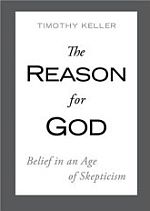“The fear of the LORD is hatred of evil. Pride and arrogance and the way of evil and perverted speech I hate.” – Proverbs 8:13
 Within the church many times, we consider “gross” sins to be homosexuality, excessive drinking, fornication, adultery, thievery, murder, cursing, etc. And while those are in no way minimized in the Scriptures as sins that are destructive both personally and relationally (and above all in relation to God Himself), the passage above speaks just as strongly against those who are prideful and arrogant within themselves. In fact, as the passage says, wisdom hates pride, arrogance, the way of evil, and perverted speech, all of those together. Seeing as how the Scriptures are the Word of God breathed out, these are His thoughts. The LORD hates pride and arrogance with a just and righteous passion.
Within the church many times, we consider “gross” sins to be homosexuality, excessive drinking, fornication, adultery, thievery, murder, cursing, etc. And while those are in no way minimized in the Scriptures as sins that are destructive both personally and relationally (and above all in relation to God Himself), the passage above speaks just as strongly against those who are prideful and arrogant within themselves. In fact, as the passage says, wisdom hates pride, arrogance, the way of evil, and perverted speech, all of those together. Seeing as how the Scriptures are the Word of God breathed out, these are His thoughts. The LORD hates pride and arrogance with a just and righteous passion.
While even unbelievers should be humbled by the fact that God doesn’t bring His hand down to crush them at this instant, how much more humbled should we be who claim to have been shown mercy at the hand of God through Christ? And yet so often, this is not the case. We so quickly turn our judgment to the outside world and what they’re doing wrong, when we need to be turning the cutting standard of the Word inwardly and analyze ourselves, measuring ourselves against it, and not our own ideals of what is morally better and worse. What about our pride and arrogance against those very people who need Jesus and are running from Him in defiance? Is this pride we possess not just as wicked in the eyes of the Lord as the evil committed outside the church? What about our hatred of those who run wholeheartedly away from the Lord? Shouldn’t you have been the one that ran away from God? What made you humble and willing to believe in Christ, yourself or the grace of God alone?
I’m in no way saying I am exempt from having committed these sins myself and speak to myself just as much as anyone reading this. I’m a sinner and have fallen in so many ways. But regardless, it seems to be a spirit within many churches where others, those outside the church, are looked down upon as greater sinners who do not hold to our own personal moral standards, when in reality, we are murderers in our hearts just like those in prison who have committed the outward act. When we hate or look down upon people for their sins, the Lord sees our hearts much like He sees Jeffrey Dahmer’s. Meditate on that for a minute in light of Romans 3:9-18. We are commanded to be pursuing holiness through faith in Christ, and yet it seems we have forgotten the fundamentals of how we were saved.
So how do we come to hate what is evil, namely pride and arrogance within our own hearts? The answer is in the verse above. “The fear of the LORD is hatred of evil.” What does it mean to fear the Lord? “I thought we weren’t supposed to fear Him at all because of Christ?” There is one sense in which that is true. Those in Christ have been ultimately accepted for eternity. There is no fear of condemnation for those who believe. And yet at the same time, even as believers, we are called by Scripture to fear the Lord. This fear is humility. Andrew Murray talks about three separate ways in which we should be humbled as believers: 1) as a creature, 2) as a sinner, and 3) as a saint.
As a creature: There is great amount of humility we should have in being a creature subject to the King of glory. He created us without our permission, for His own glory and purposes, and He has freedom over us that we do not have over Him. This is abundantly clear in Scripture. He is the Creator, we are the creatures.
As a sinner: We should also be greatly humbled that as sinners, we have slapped God in the face and told Him, “No, you do not have control over me, in any sense. I control myself and my own destiny,” and yet He is extremely patient toward our evil toward Him. It is God’s sheer grace toward both believers and unbelievers that He doesn’t stomp us out right now for the vile that comes out of our hearts through our mouths, hands, and feet. We have offended an infinitely holy God and therefore the wrath justly due to us is infinite and eternal. This is greatly humbling and strikes right at the heart of human pride, and is one of the biggest reasons people cannot accept it. They are hardened to this message because they do not want to hear it.
As a saint: Having been rightly humbled by our willful disobedience against the King of Glory, how humbled should we be to see that this holy God who owes us nothing but wrath made a way for us to be accepted through taking that wrath Himself on our behalf at the cross? We should be greatly humbled and possess an honest fear at the greatness of the frightening power and unfathomable depths of the love of God. As a saint we are humbled to not be objects of wrath, but now, because of Christ’s perfect work, we are objects of mercy. Did He have to save you? No. Why did you believe while another person in a similar position that heard the same Gospel message did not heed the call? Why did you willingly say yes to Christ? Was it not the grace of God who Himself made you willing? Ultimately, this is humbling and should move us to love the things Christ loves and hate the things He hates more and more. “The fear of the Lord is hatred of evil.” All kinds of evil, including our own self-righteous pride and arrogance.
We must constantly reorient ourselves with our humble position as creatures, sinners, and as God’s adopted people through the work of Christ. “The fear of the Lord is the beginning of wisdom.” (Proverbs 1:7) And at the same time, There is now no condemnation for those who are in Christ Jesus.” These are both different forms of humility, one in which we despise ourselves for our rebellion and yet know that we are accepted. Reorienting ourselves with the Gospel daily should bring about a correct response of both acceptance and fear of God’s might and power. God had mercy on you through the work of Christ while you were still unwilling to submit to Him by yourself. And He did this by turning your heart and giving you a willing spirit that was sensitive to heed the call of the Gospel. Praise God for His grace in moving us to faith when we wanted nothing of it until He opened our eyes to His beauty! May that squash our pride and arrogance against an increasingly pagan society. Just remember, that should have been you and would have had God not intervened and gone underneath your entire being to move you to love Him.

 This video series is apparently sweeping the country in youth groups. And while I don’t doubt that there are a lot of good things that can be taken away from this series, we must pay very close attention to 1) how things are said (mainly the Gospel itself), and 2) what is not said (pertaining to the essential message of the Gospel). This series of reviews points out the high points of the series, but also the deficiencies when compared with the historic Christian faith message we have been entrusted with. Brothers and sisters, “We must pay much closer attention to what we have heard, lest we drift away from it.” (
This video series is apparently sweeping the country in youth groups. And while I don’t doubt that there are a lot of good things that can be taken away from this series, we must pay very close attention to 1) how things are said (mainly the Gospel itself), and 2) what is not said (pertaining to the essential message of the Gospel). This series of reviews points out the high points of the series, but also the deficiencies when compared with the historic Christian faith message we have been entrusted with. Brothers and sisters, “We must pay much closer attention to what we have heard, lest we drift away from it.” (
 “We must have the full message. . . ‘deliver the whole counsel of God’. . . . It starts with the Law. The Law of God … the demands of a righteous God, the wrath of God. That is the way to bring men and women to conviction; not by modifying the Truth…. We must confront them with the fact that they are men and that they are fallible men, that they are dying men, that they are sinful men, and that they will all have to stand before God at the Bar of Eternal Judgment….And then we must present to them the full-orbed doctrine of the Grace of God in Salvation in Jesus Christ. We must show that no man is saved ‘by the deeds of the Law’, by his own goodness or righteousness, or church membership or anything else, but solely, utterly, entirely by the free gift of God in Jesus Christ His Son. . . . We must preach the full-orbed doctrine leaving nothing out-conviction of sin, the reality of Judgment and Hell, free grace, justification, sanctification, glorification. We must also show that there is a world view in the Bible … that here alone you can understand history-past history, present history, future history. Let us show this great world view, and God’s Eternal purpose…. Let us at the same time be very careful that we are giving it to the whole man … the gospel is not only for a man’s heart, that you start with his head and present Truth to it … Let us show that it is a great message given by God which we in turn pass on to the mind, to the heart, to the will. There is ever this danger of leaving out some part or other of man’s personality… Let us be certain that we address the whole man-his mind, his emotions and his will.”
“We must have the full message. . . ‘deliver the whole counsel of God’. . . . It starts with the Law. The Law of God … the demands of a righteous God, the wrath of God. That is the way to bring men and women to conviction; not by modifying the Truth…. We must confront them with the fact that they are men and that they are fallible men, that they are dying men, that they are sinful men, and that they will all have to stand before God at the Bar of Eternal Judgment….And then we must present to them the full-orbed doctrine of the Grace of God in Salvation in Jesus Christ. We must show that no man is saved ‘by the deeds of the Law’, by his own goodness or righteousness, or church membership or anything else, but solely, utterly, entirely by the free gift of God in Jesus Christ His Son. . . . We must preach the full-orbed doctrine leaving nothing out-conviction of sin, the reality of Judgment and Hell, free grace, justification, sanctification, glorification. We must also show that there is a world view in the Bible … that here alone you can understand history-past history, present history, future history. Let us show this great world view, and God’s Eternal purpose…. Let us at the same time be very careful that we are giving it to the whole man … the gospel is not only for a man’s heart, that you start with his head and present Truth to it … Let us show that it is a great message given by God which we in turn pass on to the mind, to the heart, to the will. There is ever this danger of leaving out some part or other of man’s personality… Let us be certain that we address the whole man-his mind, his emotions and his will.”

 “And you, who were dead in your trespasses and the uncircumcision of your flesh, God made alive together with him, having forgiven us all our trespasses, by canceling the record of debt that stood against us with its legal demands. This he set aside, nailing it to the cross.” –
“And you, who were dead in your trespasses and the uncircumcision of your flesh, God made alive together with him, having forgiven us all our trespasses, by canceling the record of debt that stood against us with its legal demands. This he set aside, nailing it to the cross.” –